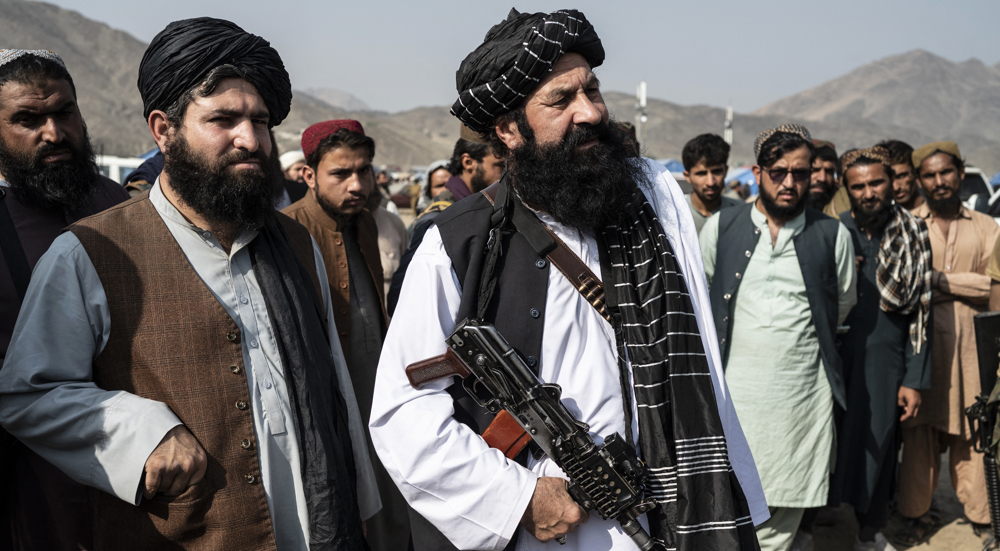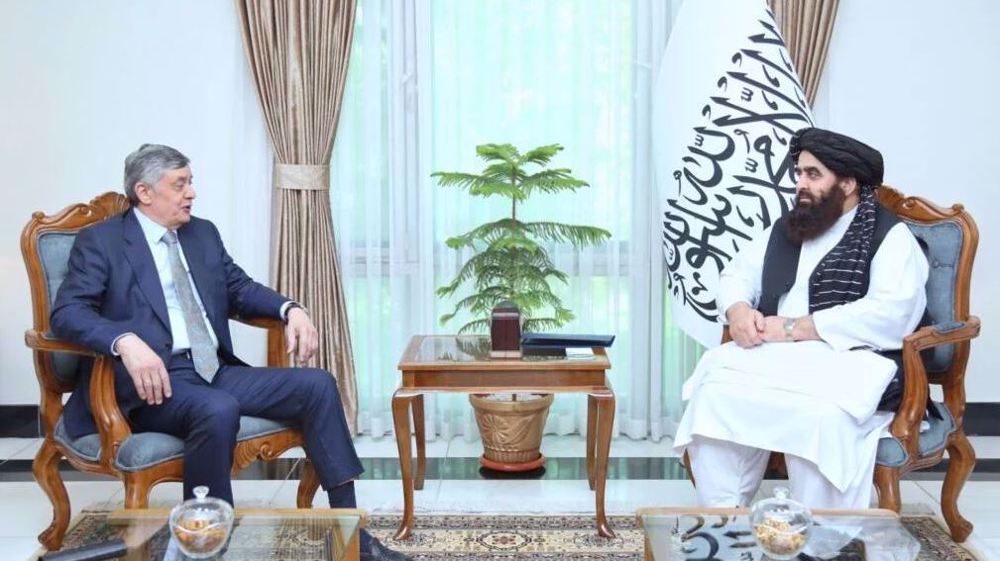Splinter group forms from within Afghan Taliban: Report
A number of militants from the Taliban group in Afghanistan have taken issue with the outfit’s leader, forming a splinter group and picking a leader of their own, a report says.
According to a Sunday report published by Pakistani daily The Express Tribune, the website of which says is affiliated with The New York Times, the self-declared “High Council of Afghanistan Islamic Emirate” chose senior commander Mullah Mohammad Rasoul at the end of a meeting in Afghanistan’s southern province of Zabul.
No to Mullah Akhtar
The group refused to pledge allegiance to the current Taliban chief, Mullah Akhtar Mohammad Mansour, who was elected in late July after the announcement of the 2013 death of Taliban’s longtime leader Mullah Muhammad Omar.
The splinter group also appointed Mullah Mansour Dadullah and Sher Mohammad Masnour as Rasool’s deputies, the report said.

Gaping hole of division
The confirmation of Omar’s death laid bare the divisions within the senior ranks of the Taliban over new leadership. Many Taliban commanders opposed the appointment of Mansour as their new head and said they preferred Omar’s son, Mullah Yaqoob, to succeed his father.
Afghan government sources said previously that Omar had chosen former deputy and co-founder of the Taliban, Mullah Baradar Akhund, to succeed him.
There have also been growing differences between Taliban elements over peace talks with the Afghan government, with some vowing to fight for power instead of taking part in negotiations.
Talks between Kabul and Taliban militants were put on hold in the wake of Omar’s death.
Omar organized the group following the withdrawal of the Soviet forces from Afghanistan in the 1990s. The group was ousted from power in 2001 with the US-led invasion of Afghanistan as part of Washington’s so-called war on terror.
The Taliban has been operating in both Afghanistan and neighboring Pakistan.
‘Afghan security to be affected’
In a Monday interview with Press TV’s Website, Ahmad Hasib Farhan, of the Afghanistan Justice Organization, said the rift within the Taliban would aggravate the situation in war-ravaged Afghanistan.
He explained that security would be affected as various Taliban splinter groups struggle to wrest control over different parts of the country.
“The cracks emerging at the highest level of the Taliban leadership is directly affecting the peace talks that [Afghan] President [Ashraf] Ghani initiated and also directly affects the security situation in Afghanistan,” Farhan said.
He added that the Afghan government is faced with a dilemma finding the right group to negotiate with. “It is becoming difficult for the Afghan government to decide the fate of peace talks. It is challenging to choose the right Taliban group for peace talks,” the activist said.
'Next to impossible' to rescue patients from Gaza's Kamal Adwan Hospital: Director
VIDEO | Vietnam current prosperity
Report blames gasoil exports for shortage at Iranian power plants
VIDEO | Hind Rajab Foundation names Israeli war criminals vacationing after Gaza genocide
VIDEO | Australians rally for Gaza ahead of Christmas festivities
VIDEO | Attacks on Sana'a
Iran reports further drop in annual inflation rate in December
Israel indicts two settlers over suspected spying for Hezbollah










 This makes it easy to access the Press TV website
This makes it easy to access the Press TV website